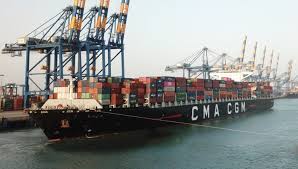Logistics education must evolve to meet industry demands. Prof. (Dr.) Jitesh J. Thakkar emphasizes the need for a holistic curriculum that integrates technology, management, and policy, preparing students with practical skills to thrive in the dynamic logistics landscape.

The logistics industry is undergoing rapid transformation due to technological advancements, globalisation, and shifting consumer expectations. To address these changes, there is an increasing need for professionals who are not only technically skilled but also strategically astute and adaptable. Consequently, logistics education must be continuously updated to equip future professionals with the essential skills and knowledge to excel in this evolving environment.
Integrated approach
A strong logistics education foundation should merge theoretical knowledge with practical application. Traditional classroom learning must be supplemented with real-world experiences, such as internships, simulations, and case studies. This hands-on approach helps students understand logistics operations’ complexities, bridging the gap between academic concepts and industry practices. Such practical experience is crucial for preparing students to navigate the challenges they will encounter in their careers.
Technological proficiency
Technology is pivotal in modern logistics, driving efficiency and innovation. Therefore, curricula must emphasise technological proficiency. Courses should cover emerging technologies like automation, artificial intelligence (AI), blockchain, and the Internet of Things (IoT). Students should not only learn about these technologies but also gain practical experience using them. This can involve projects where students design and implement tech-driven solutions for logistics issues, ensuring they are adept with the tools reshaping the industry.
Data analytics focus
Data analytics has become a critical element in logistics management. The ability to analyse and interpret data is essential for making informed decisions, optimising supply chain processes, and enhancing operational efficiency. Curricula should include modules on data analytics, teaching students to work with large datasets, use analytical software, and apply statistical methods to solve logistics problems. Emphasising data literacy will prepare future professionals to use data for strategic decision-making effectively.
Sustainable practices











